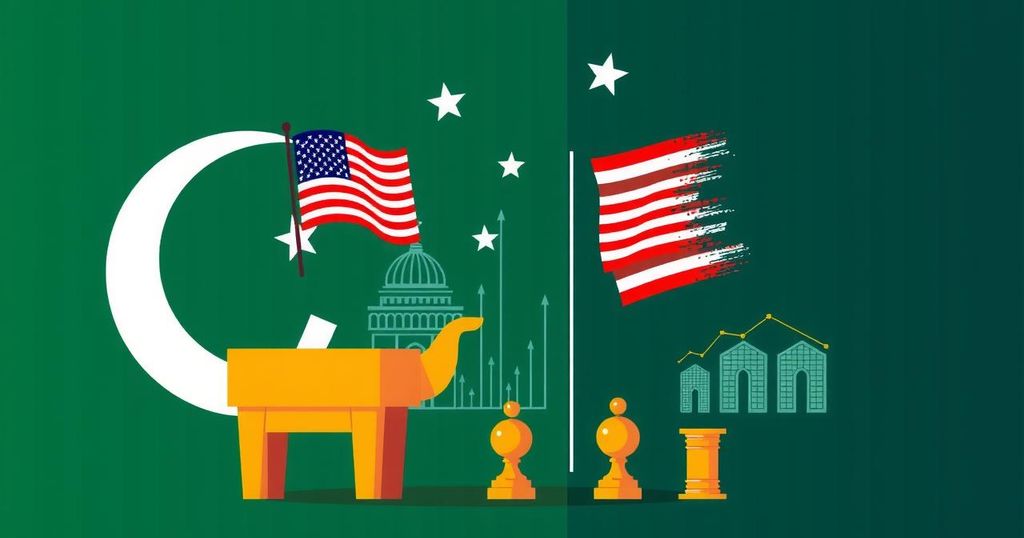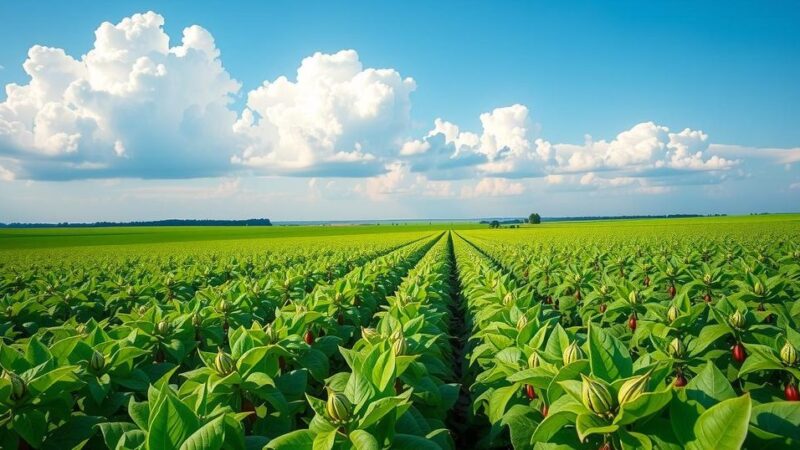The article discusses the possible effects of the US elections on Pakistan’s economy, highlighting the different economic strategies of candidates Donald Trump and Kamala Harris. It notes that Pakistan’s significant reliance on US markets for exports, particularly in textiles, can create risks under Trump’s proposed tariffs, while Harris might foster a more stable trade relationship. However, both candidates aim to enhance American purchasing power, which could indirectly benefit Pakistan’s exports. Ultimately, Pakistan must resolve its internal issues to better seize any potential opportunities.
The upcoming US elections may significantly affect Pakistan’s economy, especially through trade and investment. While both presidential candidates, Donald Trump and Kamala Harris, propose to stimulate the economy, their strategies diverge. Pakistan’s exports to the US account for nearly 20% of its total exports, with textiles being the primary sector affected. Under Trump’s potential policies, increased tariffs and a focus on domestic production may diminish Pakistan’s competitive edge. Conversely, Harris’s dialogue-focused approach could mean more stability for trade relations. Both candidates aim to enhance American purchasing power, which could increase demand for Pakistani goods, yet the impact may be marginal. For Pakistan to truly benefit, it must address its domestic challenges to attract foreign investment, particularly from China, which has been increasing its operations in neighboring countries like Mexico. It is essential for Pakistan to capitalize on existing opportunities and overcome bureaucratic hurdles to enhance its economic relationship with the US, regardless of who wins the presidential race.
The article examines the potential ramifications of the US presidential elections on Pakistan’s economy, particularly concerning trade and direct investment. It highlights how economic policies by US candidates Donald Trump and Kamala Harris may shape the future of Pakistan’s exports, primarily in the textile sector, which significantly contributes to the country’s foreign sales. Both candidates propose measures to increase American purchasing power, yet their approaches toward businesses and tariffs could have differing implications for Pakistan’s economic landscape. The article emphasizes Pakistan’s reliance on US trade and investment, illustrating the complexities of their economic ties and potential outcomes depending on the election results.
In conclusion, the US elections hold considerable implications for Pakistan’s economy. The divergent approaches of Donald Trump and Kamala Harris could reshape trade dynamics, investment patterns, and the overall economic relationship between the two countries. While both candidates aim to increase American purchasing power, the impact on Pakistan will largely depend on tariff policies and US-China relations. For Pakistan to optimize benefits, there is an urgent need to address internal challenges and create a more favorable environment for foreign investments.
Original Source: www.dawn.com






